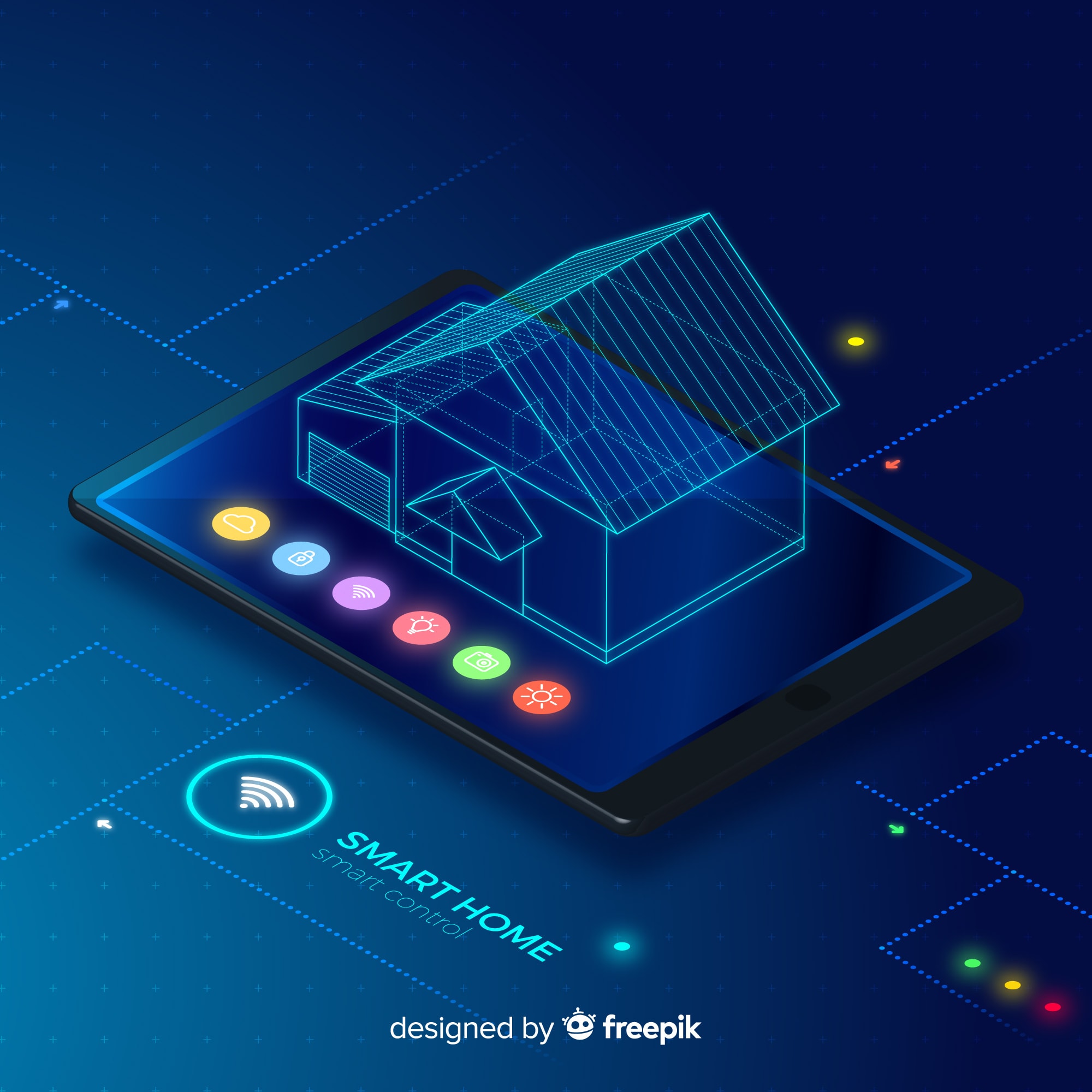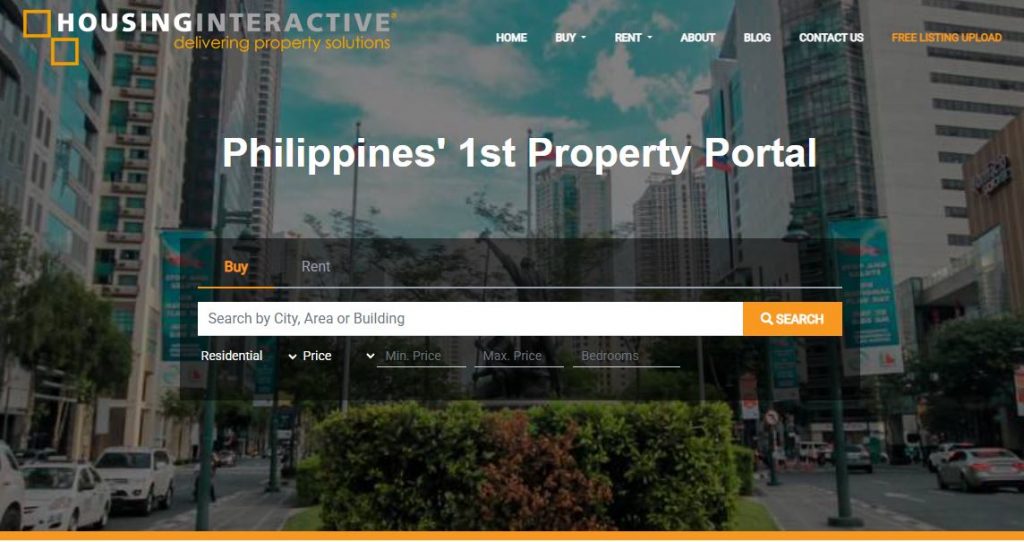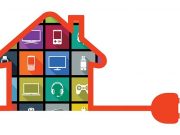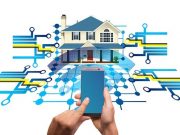Technology is rapidly transforming the Philippine real estate industry. Property managers and real estate agents actively leverage advanced tools like property management software and smart technologies, boosting efficiency and enhancing customer satisfaction.

The integration of AI and machine learning provides crucial data-driven insights, improving decision-making across the sector. With the support of PropTech initiatives, these advancements allow property managers to remain competitive and boost tenant satisfaction. Simultaneously, real estate professionals are recognizing the vital role technology plays in streamlining processes and enhancing client experiences.
The Digital Evolution: How Technology is Reshaping Property Management and Homeownership in the Philippines
PropTech, short for Property Technology, is changing how properties are managed and how Filipinos buy, sell, and live in homes. From automating rent collection to streamlining transactions and using smart tech in buildings, PropTech is making the industry more efficient, transparent, and accessible.
This shift is fueled by rising consumer demand for convenience, sustainability, and digital services, alongside increased investment in the sector. But the road isn’t without challenges. Cultural preferences for face-to-face interaction, uneven infrastructure, and evolving data privacy and e-transaction laws are slowing full adoption.
Despite these barriers, innovation is gaining ground. PropTech startups are emerging, and the government is beginning to support the shift with initiatives that promote smarter and more inclusive housing. What’s next? A hybrid model that combines tech efficiency with human connection, expanding reach, raising standards, and tackling issues like affordability.
Current State of the Market
The Philippine real estate market is growing, fueled by high demand for both residential and commercial properties. While challenges like high costs, limited supply, and a lack of transparency persist, technology now empowers buyers with better access to market data and trends, driving more informed decisions. Virtual tours, for example, are gaining significant traction among property buyers. Real estate agents and property managers are actively adopting technology to improve sales processes and boost customer satisfaction.
PropTech in the Philippines: A New Era
What is PropTech?
PropTech is the use of digital tools to modernize real estate. Globally, it’s reshaping how people build, buy, manage, and invest in property. Core technologies like AI, big data, blockchain, VR/AR, and IoT are powering this shift, automating tasks, cutting costs, and improving decision-making.
It’s also helping address important challenges. Real estate uses a huge amount of energy globally and adds significantly to pollution. PropTech tools that track energy use or manage smart buildings are becoming essential for reducing environmental impact.
Why It Matters in the Philippines
The local real estate market is embracing digital change faster than ever. Developers, property managers, and buyers are moving beyond manual processes in favor of faster, smarter systems. Big players like Ayala Land and DMCI Homes are investing in digital platforms, not just for convenience, but to stay competitive.
But tech alone isn’t enough. In the Philippines, personal relationships still play a big role in real estate. The winning formula combines high-tech tools with personalized service. Digital solutions must support, and not replace, human interaction to truly work in this market.
Role of Technology in Property Management
Technology empowers property managers to optimize energy consumption, streamline maintenance, and enhance security, significantly reducing a property’s carbon footprint. This makes properties more sustainable and attractive to buyers. Property management software provides tools for efficient oversight. Simultaneously, smart technologies, including smart home features, improve tenant living experiences and boost property values. Ultimately, technology facilitates personalized services that enhance tenant satisfaction and loyalty, driving more effective and sustainable property management.
How Tech is Transforming Property Management
Smarter Systems, Smoother Operations
Property Management Software (PMS) is helping property managers cut costs, save time, and improve tenant satisfaction. These systems automate tasks and centralize management, all while giving tenants more control and convenience.
Key Features and Benefits:
- Automated Rent Collection: Tools that simplify payments and reduce late fees.
- Lease Tracking: Alerts and dashboards from platforms like Enterprise Resource Planning (ERP) keep contracts on track and reduce missed deadlines.
- Maintenance Management: Tenants can file maintenance requests online, while managers track them in real time, avoiding costly repairs.
- Financial Reporting: Property Management Systems (PMS) platforms offer real-time expense tracking, automated billing, and clear reports for better business decisions.
- Tenant Communication: Property Management Software and apps let tenants message managers, pay rent, and request services in just a few taps. Traditional communication methods like email remain a formal and official method for communicating pertinent lease information, reminders, and invoices. Phone calls are also used for inquiries and addressing concerns.
- Multi-Property Dashboards: Real Estate Management Solutions (REMS) are available to manage portfolios of properties, often with features that function as dashboards for centralized control.
Advanced Tools:
Some systems offer AI-powered insights, marketing tools for vacant units, and full integration with accounting platforms, cutting hours of manual work.
Bottom Line:
The data is clear. PMS tools lead to fewer errors, faster service, and happier tenants. For property managers, they reduce manual work and improve oversight. For tenants, they offer ease, speed, and transparency. That means higher satisfaction and better business.
Here is a comparative overview of leading Philippine property management software features:
| Software Name | Key Features | Target Market/Best For | Noteworthy Benefits |
| HashMicro Property Management Software | Automated Rent Collection, Lease Tracking, Maintenance Management, Financial Tracking & Reporting, Tenant Communication, Multi-Property Management, AI-powered analytics, Customizable Features | Condo associations, large-scale property investments, and real estate development | Accurate Availability, Centralized Database, Efficient Leasing/Sales, Automated Invoices, In-Depth Reports |
| Buildium Property Management Software | Payment Processing, Tenant Portal, Work Order Management, Billing & Invoicing, Organizing maintenance schedules | Residential property managers, real estate agencies, and HOA properties | User-friendly interface, good functionality for property businesses |
| TenantCloud | Online Rent Collection, Customizable Lease Agreement Templates, Maintenance Request Management, Vacancy Marketing Tools | Landlords and property managers | User-friendly interface, effective vacancy marketing, robust lease management, comprehensive maintenance tracking |
| Collo | Smart Automation (rent collection, maintenance), Enhanced Tenant Experience (mobile app, communication, payments), Customizable Integrations, 360° Portfolio Insights | Dormitories, co-living spaces, apartments, condominiums, subdivisions, HOAs, commercial office spaces | 50% cut operational expenses, 80% reduce manual task time, 95% improve overall efficiency, saves 10+ hours weekly |
| MRI Property Management | Integrated accounting, Resident and tenant portals, Facility management, AI lease management | Enterprise-level property management firms require advanced financial, leasing, and operational tools | Easy-to-use features, friendly customer support |
Smart Buildings and IoT Are Changing the Game
Smart buildings powered by Internet of Things (IoT) technology are revolutionizing real estate in the Philippines. These systems improve energy efficiency, boost security, and make life more comfortable for tenants.
Local developers and PropTech firms are leading this shift. They’re designing smart systems that cut costs, save energy, and improve the tenant experience. SM Prime Holdings is a standout example. They’ve installed Energy Recovery Ventilators (ERVs) that recycle air to improve ventilation and reduce energy use. Their offices also use Building Management Systems (BMS) and advanced HVAC technologies to cool spaces more efficiently and reduce water and electricity consumption.
The takeaway: Smart buildings aren’t just about comfort, they’re a smart business move. They reduce operational costs and meet rising demands for sustainability. More developers are investing in smart tech not for luxury, but because it drives long-term savings and keeps them aligned with global environmental standards.
A New Homeownership Experience
Smarter Property Search and Marketing
Property hunting in the Philippines has gone digital. Online platforms like HousingInteractive are now the first stop for most buyers. These digital sites let users filter properties by location, price, features, and amenities, essentially offering a 24/7 virtual open house.

High-quality listings with photos, maps, and neighborhood info save buyers time and make decision-making easier. Online property searches have jumped over 60% in the past five years, showing just how reliant Filipinos have become on digital tools.
What’s changing the game even more?
- Virtual tours and 3D walkthroughs. Buyers can explore properties remotely, ideal for OFWs and international investors. This tech expands the seller’s reach and speeds up decisions, even across borders.
The Smart Home Boom
Smart homes are gaining serious traction in the Philippines. Buyers want more convenience, better security, and energy savings, and smart homes deliver.
Common smart home features include:
- Connected Devices: Smart speakers, plugs, and control panels that automate and centralize home management.
- Security Systems: Remote-controlled locks, surveillance cameras, and motion sensors offer real-time monitoring and access control.
- Automated Lighting & Appliances: Control lights, ACs, and appliances through your phone or voice command.
Leading the charge:
RLC Residences has set the bar with projects like Le Pont and Mira. Their units feature:
- Smart Lights & Plugs: Reduce energy use and prevent accidents.
- Smart Locks: Use fingerprint, passcodes, keycards, or a mobile app for access.
- Audio-Video Intercoms: Screen visitors from inside your unit.
- Climate Control: Smart thermostats adjust settings based on weather and occupancy, helping beat the heat efficiently.
Why it matters:
Smart homes aren’t just trendy, they’re practical. They save time, cut energy bills, and keep families safer. While initial costs may be higher, the long-term benefits make it worth it. As more brands compete in this space, smart tech is becoming more affordable and within reach for more Filipino families.
Here is a table outlining key smart home technologies and their benefits in the Philippine context:
| Technology/Device | Specific Features | Benefits for Homeowners |
| Smart Lighting | Energy-efficient LED bulbs, remote control via app/voice, scheduling, and dimming | Convenience, energy savings, improved ambiance, reduced electricity bills |
| Smart Power Outlets | Remote on/off control, scheduling, energy monitoring | Energy efficiency, cost reduction, prevention of power-related accidents, and convenience |
| Smart Locks | Fingerprint access, numeric passcode, encrypted keycard, mobile app control, remote locking/unlocking | Enhanced security, keyless entry, remote access control, and visitor screening |
| Smart Thermostats | Automated climate control, temperature optimization based on weather/occupancy, motion sensors | Energy savings (especially in humid climates), increased comfort, reduced electricity costs |
| Security Cameras & Sensors | Remote monitoring, motion detection, alarms, and video doorbells | Improved safety and security, remote surveillance, peace of mind, and crime deterrence |
| Voice Assistants (Smart Speakers) | Centralized control of smart devices, task automation (alarms, music, ordering) | Enhanced convenience, hands-free control, simplified daily tasks |
| Smart Appliances | Remote control (e.g., coffee machines, ovens), automated functions (e.g., robotic vacuums), notifications | Convenience, time-saving, easier chores, and optimized cooking |
Going Digital: Transactions and Financing
Technology is reshaping how Filipinos buy, finance, and own property. From digital payments to blockchain and smart lending, the real estate transaction process is faster, more convenient, and increasingly global.
End-to-End Online Platforms:
Platforms like HousingInteractive offer a fully digital experience, connecting buyers with licensed brokers, enabling online reservations, and supporting payments via credit cards and e-wallets. They pre-screen clients, handle documents, and simplify the transaction process, cutting down effort and delays for both buyers and sellers.
Cross-Border Deals for Overseas Filipinos:
OFWs are fueling the demand for remote-friendly solutions, virtual tours, digital consultations, and cross-border financing. Platforms like Bahai Deals, backed by the Department of Trade and Industry, cater to global Filipinos. They provide direct-to-developer listings, flexible payment options, and financing solutions, helping channel foreign investment into local real estate.
Digital Lending is on the Rise:
Financing is also evolving. Digital banks, mobile apps (GCash, Maya), and peer-to-peer platforms (Blend PH) offer quick, paperless loan processing. While most are focused on smaller loans for now, these tools are laying the groundwork for more accessible property financing. Government-backed programs like DBP’s BAHAY initiative and CTS Financing are helping fill funding gaps for developers and buyers.
Blockchain Boosts Trust and Speed:
Startups like Qwikwire are using blockchain to enhance transparency in property listings and payments. Their partnership with GCash supports real-time, secure settlements, an important step toward more efficient property transactions.
But Full Digital Still Has Limits:
Despite all this progress, most buyers in the Philippines still want human interaction, especially for major decisions like buying property. People want to visit the site, consult family, and deal with someone they trust. Legal processes, like notarizing the Deed of Sale, still require physical presence. That’s why a hybrid model is emerging: tech handles the heavy lifting, but human support and legal steps remain essential.
Key Takeaway:
Digital platforms are streamlining the process, but success in the Philippines means blending tech convenience with cultural and legal realities. PropTech solutions must be flexible enough to support both digital and traditional touchpoints.
The Innovation Landscape
The ecosystem is moving beyond generic platforms. There’s growing specialization, and startups are addressing specific gaps in listings, payments, access, and sustainability. It shows a maturing industry ready for broader transformation.
Digital innovation in Philippine real estate is no longer just about automation. It’s about democratization, opening doors for more people to own homes, access credit, and participate in a system that was once out of reach.
Impact of Technology on Real Estate Agents
Technology is significantly transforming the role of real estate agents in the Philippines by streamlining the buying and selling process, enhancing marketing efforts, and enabling more efficient and effective work. While these advancements offer numerous opportunities to improve services and boost customer satisfaction, they also present challenges such as the need for agents to develop new skills and adapt to evolving market conditions. Despite these hurdles, technology remains a key driver in modernizing the real estate industry and expanding its potential for growth and innovation.
Real Estate Technology Trends
Technology is fundamentally transforming the Philippine real estate market, enhancing the buying and selling experience. Virtual tours, augmented reality, AI, and blockchain now offer immersive experiences and secure transactions.
Data analysis and machine learning provide real estate professionals with crucial insights, enabling informed decisions and accurate market predictions. Developers increasingly integrate green technologies into properties, emphasizing sustainable development and energy efficiency.
Despite challenges like high investment costs and the need for greater education, these technologies are creating a positive outlook for the market. They generate significant opportunities for growth, innovation, and investment across residential, commercial, industrial, and tourism sectors.
What’s Driving, and Hindering, PropTech Growth
What’s Fueling PropTech Adoption
- Tech Breakthroughs: Rapid development in AI, IoT, blockchain, and VR is driving smarter solutions.
- Changing Buyer Expectations: People want convenience, sustainability, and security. PropTech delivers all three.
- Need for Efficiency: Developers and property managers want to cut costs, streamline workflows, and boost performance.
- Investment Boom: Major funding like Lhoopa’s US$80M is accelerating innovation and scaling.
- Cheaper Smart Devices: Growing competition is driving down costs, making smart tech more accessible.
- Government Push: Agencies like DICT and DHSUD are investing in digital infrastructure and smart city programs.
- OFW Market Demand: Overseas Filipinos drive demand for remote-friendly buying and financing solutions.
What’s Holding It Back
- Cultural Habits: Buyers still value personal touchpoints. Family input and physical walkthroughs remain critical.
- Economic Pressure: Affordability is key. Digital tools must offer real value to gain market trust.
- Poor Infrastructure: Spotty internet and a mobile-first market create gaps in experience and delivery.
- Resistance to Change: Many in the industry still rely on traditional methods and hesitate to shift.
- Integration Challenges: New tech doesn’t always play nice with old systems, causing delays and data silos.
- High Upfront Costs: Especially for SMEs, the investment in software, hardware, and training is a major hurdle.
- Skills Gap: There’s a shortage of professionals with digital literacy. Training is essential for mass adoption.
Bottom Line:
PropTech is growing fast in the Philippines, but for it to scale nationwide, it needs to be inclusive. This means bridging the skills gap, improving digital infrastructure, and combining innovation with the cultural and legal nuances of Filipino real estate.
Here is a table summarizing the major challenges to PropTech adoption and potential mitigation strategies:
| Challenge | Specific Manifestation in the Philippines | Impact on Adoption | Potential Mitigation Strategies |
| Cultural Resistance | Preference for personal relationships, family decision-making, need for physical validation (“feeling” spaces) | Slows down the adoption of purely digital processes; requires hybrid models | Develop hybrid digital-physical experiences; emphasize trust-building features; integrate collaborative tools for family decision-making |
| Infrastructure Limitations | Connectivity variations, mobile-first internet access, and Metro Manila traffic are affecting site visits | Inconsistent user experience, limits the reach of online services, hinders virtual tour adoption | Government investment in nationwide broadband and public Wi-Fi, mobile-first design principles with offline capabilities, and image compression for lower data usage |
| Data Security & Privacy Concerns | High incidence of data breaches (24M+ accounts compromised in 2024); reliance on foreign cloud vendors; data sovereignty debate | Reduced trust in digital platforms, hesitancy to share sensitive data, and regulatory uncertainty | Implement robust cybersecurity measures (AI-powered threat detection, encryption); ensure DPA compliance; develop a clear regulatory framework for cloud and data sovereignty; independent audits |
| High Initial Costs | Daunting upfront investment for software, hardware, and training, especially for SMEs | Barrier to entry for smaller firms; slower market penetration | Focus on scalable, modular solutions; explore PropTech outsourcing (PH cost-effective workforce); government incentives for tech adoption |
| Integration Issues | Legacy systems, lack of common technological standards | Workflow disruptions, data silos, inefficiencies, and limited comprehensive solutions | Prioritize solutions with easy integration; conduct thorough workflow assessments; collaborate with IT professionals; advocate for industry-wide data standards |
| Lack of Technical Expertise | Skills gap among real estate professionals in utilizing new technologies effectively | Hinders the successful implementation and operation of PropTech solutions | Implement regular training sessions and workshops; foster a culture of innovation; highlight success stories; invest in upskilling programs |
Data Privacy and Cybersecurity: A Growing Risk in PropTech
As PropTech platforms collect more personal and financial data, privacy and cybersecurity are critical concerns.
Legal Safeguards Are in Place:
The Data Privacy Act of 2012 requires real estate players to get consent, protect customer data, and secure systems like CCTVs. Failure to comply can lead to penalties and reputational damage.
Cyber Threats Are Escalating:
In 2024, over 24 million Filipino accounts were exposed in data breaches. Attacks like the ransomware incident at PhilHealth (impacting 42 million people) show the urgent need for stronger cybersecurity across sectors, including real estate.
Cloud Dependence Raises Sovereignty Risks:
Most PropTech platforms use global cloud providers like AWS, Huawei, and Alibaba. While efficient, this raises national security concerns. The government is considering stricter data sovereignty rules, but critics warn these could increase costs, limit global competitiveness, and harm startups that rely on cross-border data transfers.
Key Insight:
To scale responsibly, PropTech solutions must embed robust data security, ensure compliance with privacy laws, and stay informed about potential cloud regulations. Balancing innovation and security is no longer optional; it’s a business imperative.
Government Actions and the Evolving Rules
The Philippine government is actively pushing for digital transformation, but the legal system is still catching up to tech developments in real estate.
What’s Moving Forward:
- Government Procurement Goes Digital: A new Procurement Reform Act aims to adopt e-bidding, e-payment, and e-marketplace platforms through PhilGEPS.
- Connectivity Investments: Projects like Free Public Wi-Fi and the National Broadband Plan aim to boost internet access and reliability nationwide, critical for PropTech adoption.
- Smart City Push: DHSUD’s 4PH program supports tech-driven housing and smart city projects in places like Davao, Cebu, and New Clark City.
- Stronger E-Commerce Laws: The E-Commerce Act and Internet Transactions Act of 2023 support online contracts, payments, and privacy, though real estate remains partially excluded.
Where the Gaps Remain:
- Deed of Sale Still Requires Physical Notarization: Despite digital advances, buyers still need to sign and notarize property documents in person to transfer ownership.
- Regulatory Catch-Up Needed: Until real estate-specific laws allow fully digital transactions, platforms will remain limited to a hybrid model.
- Policy Tension on Data Sovereignty: A proposed executive order could force sensitive data to stay onshore. But this could raise costs and disrupt services that depend on international data flows.
Key Takeaway:
Digital tools are moving fast, but laws need to evolve. The government should prioritize:
- Digital notarization standards
- Clear cloud regulations
- End-to-end digital property transfer rules
This will unlock the full potential of PropTech and support both local and international adoption.
Conclusion and Outlook: What’s Next for Philippine PropTech
The Philippine real estate market maintains a positive outlook, fueled by strong demand for residential and commercial properties. Technology increasingly drives efficiency for real estate professionals, further supporting this growth.
While challenges like transparency, regulation, and high investment costs persist, significant opportunities exist for investors and developers in sectors like industrial and tourism. Overcoming implementation hurdles through partnerships, education, and pilot projects can fully unlock the market’s potential. The real estate sector is poised to become a key contributor to the country’s economic growth.
What Stakeholders Should Do
For Developers and Property Managers:
- Invest in hybrid models that combine tech with personal service.
- Prioritize data security and compliance-ready platforms.
- Focus on smart building features that deliver ROI (like energy and water savings).
- Upskill teams to manage new tools and data-driven operations.
For Homebuyers:
- Use online platforms to streamline property search and research.
- Be ready for hybrid transactions; some steps are still offline.
- Weigh smart home features against costs for long-term savings.
- Know your data rights and make sure platforms protect your information.
For Government:
- Accelerate internet infrastructure, especially in underserved areas.
- Modernize laws to allow fully digital property transfers.
- Provide clear cloud and data rules to balance sovereignty and innovation.
- Support PropTech innovation with funding, incentives, and public-private partnerships, especially for solutions tackling affordable housing.
What’s Ahead: Trends and Opportunities
AI and Predictive Analytics:
AI will go beyond property matching. Expect smarter forecasting, personalized recommendations, and predictive maintenance, making property investment and management more proactive.
Smart Cities Are Coming:
With government backing, smart city projects will bring more connected infrastructure, integrated services, and potentially higher property values in digital-ready zones.
Blockchain for More Than Listings:
Blockchain could expand into land titles, fractional ownership, and smart contracts, but regulation must catch up to unlock its full value.
Green PropTech Gains Ground:
As climate concerns grow, tools focused on energy efficiency, sustainable materials, and smart grids will become essential in both design and operations.
Hyper-Personalized Homeownership:
From AI-generated home matches to tailored financing and remote-managed appliances, real estate will become a personalized experience, not just a transaction.
Post-Purchase Digital Tools Will Rise:
Expect more platforms focused on community engagement, maintenance tracking, and value-added services after purchase, not just sales.
PropTech Outsourcing Will Grow:
The Philippines’ skilled, cost-effective workforce makes it a hub for global PropTech development, boosting local innovation and job creation.
Final Thought: Integration Is the Future
The biggest risk now? Fragmentation. With so many tools emerging, there’s a real danger of data silos and clunky user experiences.
The solution: seamless integration and interoperability. Whether through super-apps or government-backed digital ecosystems, the goal must be a unified experience across the real estate value chain.
Also, while solving the housing shortage is vital, we must address the quality of life, not just quantity. PropTech must evolve to improve:
- Connectivity
- Basic services
- Proximity to jobs
- Energy and security in daily living
Smart homes and cities can help, but only if we design with people, not just profit, in mind.
Discover how HousingInteractive, the Philippines’ first property portal, is delivering property solutions that embrace this holistic approach to real estate. Explore our offerings today!

























